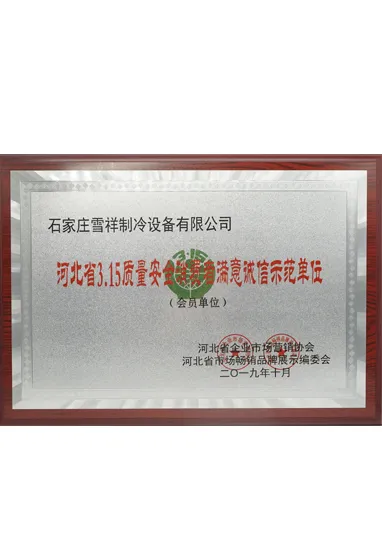Custom Cold Room for Meat Storage - Secure & Efficient Solutions
Custom Cold Room for Meat Storage Ensuring Quality and Safety
In the meat industry, maintaining the integrity and quality of products is paramount. A custom cold room for meat storage is an essential investment for processors, distributors, and retailers who are committed to delivering fresh, high-quality meat to consumers. With the right design and features, these cold rooms can ensure optimal conditions for meat preservation, thus reducing waste and improving profitability.
One of the primary considerations in designing a custom cold room is temperature control. Meat must be stored at specific temperatures to inhibit bacterial growth and spoilage. Most meat requires a chilling temperature of 28°F to 32°F (-2°C to 0°C) for proper storage. A custom cold room can be outfitted with advanced refrigeration systems that allow for precise temperature regulation, ensuring that the meat remains in its ideal environment throughout its storage life.
Humidity control is another critical factor that affects meat storage. Too much humidity can lead to the growth of mold and bacteria, while insufficient humidity can cause meat to dry out and lose its quality. Custom cold rooms can be equipped with humidity control systems that maintain the ideal moisture levels, allowing for the preservation of the meat's texture and flavor. This can be particularly important for high-end cuts that are marketed based on their quality and freshness.
custom cold room for meat storage

Ventilation is also integral to the storage process. Proper air circulation helps to avoid any hot spots within the cold room, which can lead to uneven cooling. A well-designed custom cold room will incorporate effective ventilation systems that ensure consistent airflow, helping to maintain uniform temperature and humidity levels throughout the space.
Another key feature of a custom cold room is the choice of materials used in its construction. The walls, ceilings, and floors must be insulated to minimize temperature fluctuations. Energy-efficient materials not only help maintain the internal conditions but also reduce energy costs, making the operation more sustainable. Additionally, non-porous and easy-to-clean surfaces are essential for maintaining hygiene standards, as meat storage areas must comply with strict health regulations.
Finally, custom cold rooms can be tailored to fit specific operational needs. Whether it's accommodating large quantities of various meat types or integrating advanced monitoring systems for temperature and humidity, a custom solution allows businesses to enhance their efficiency and product quality. This adaptability can significantly improve the overall workflow, helping businesses respond more effectively to consumer demands.
In conclusion, investing in a custom cold room for meat storage is a strategic move for any business looking to ensure the highest quality and safety standards in their meat products. With features designed to control temperature, humidity, and ventilation, these specialized facilities can help minimize waste, maximize profitability, and ultimately satisfy customers.






